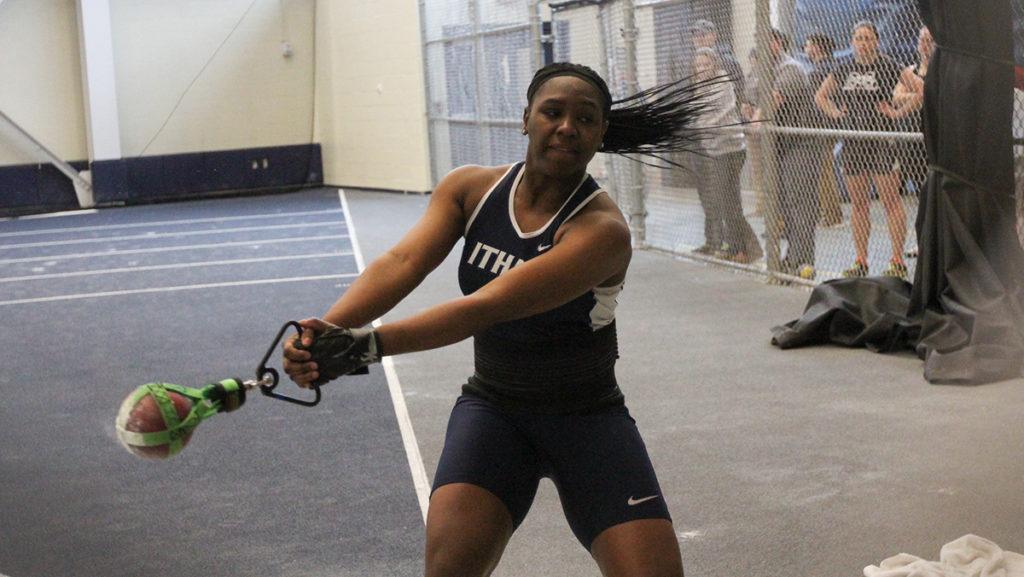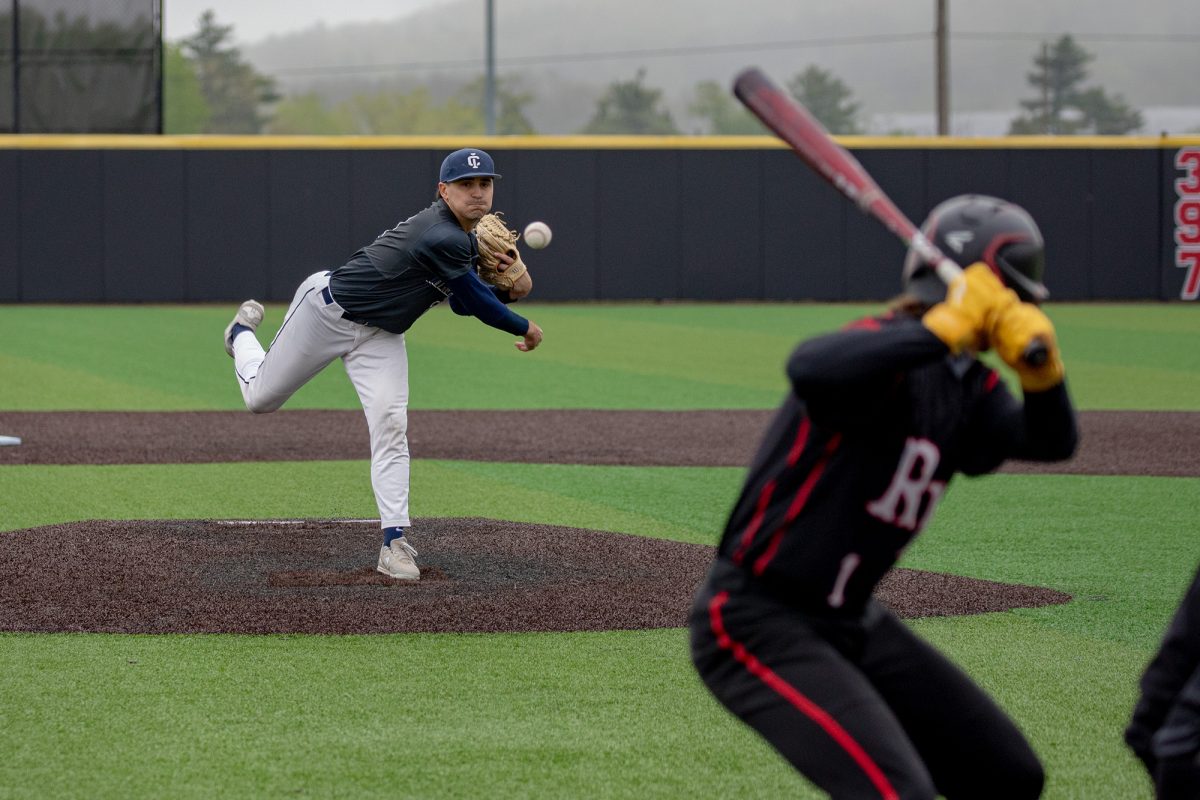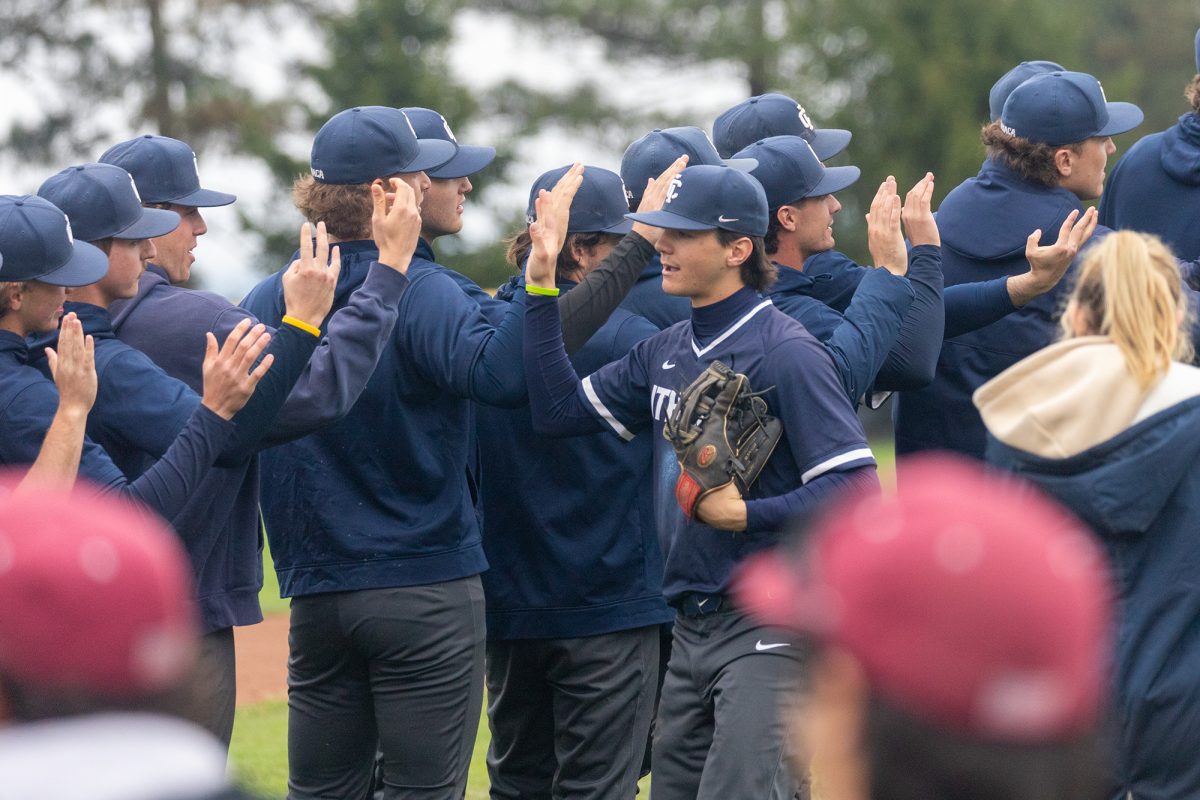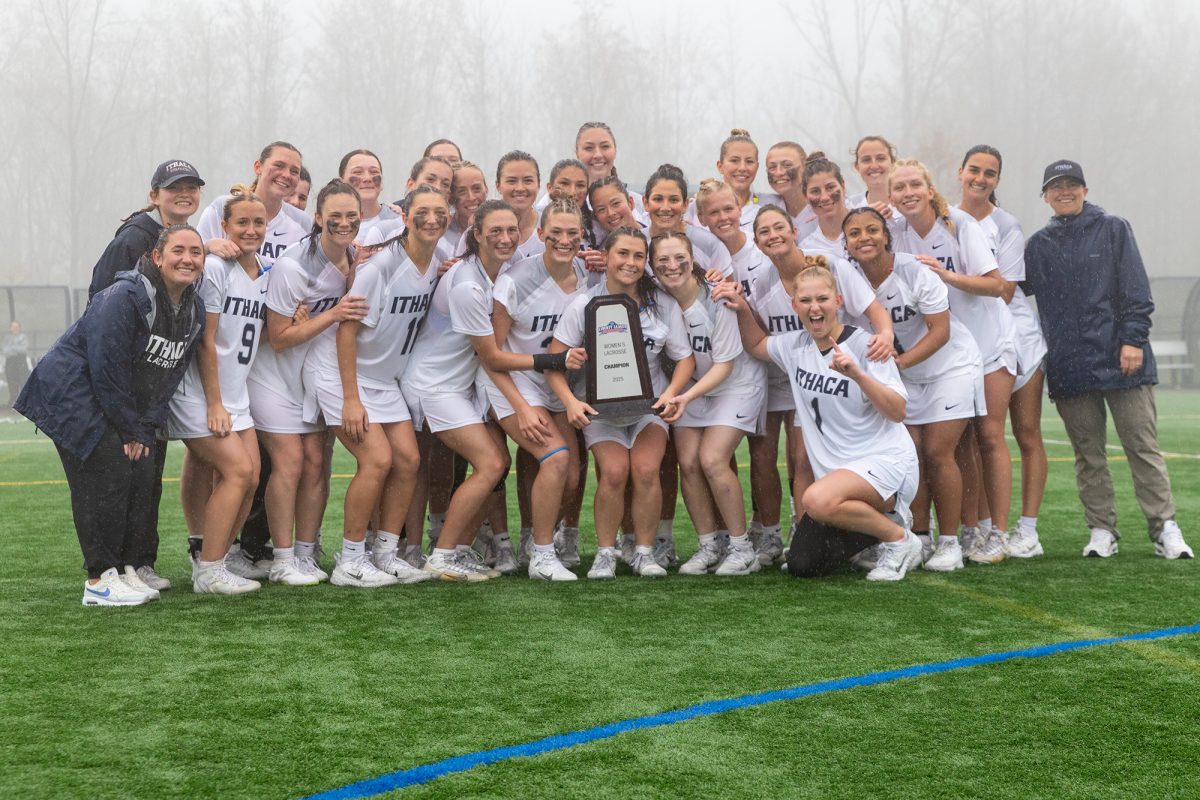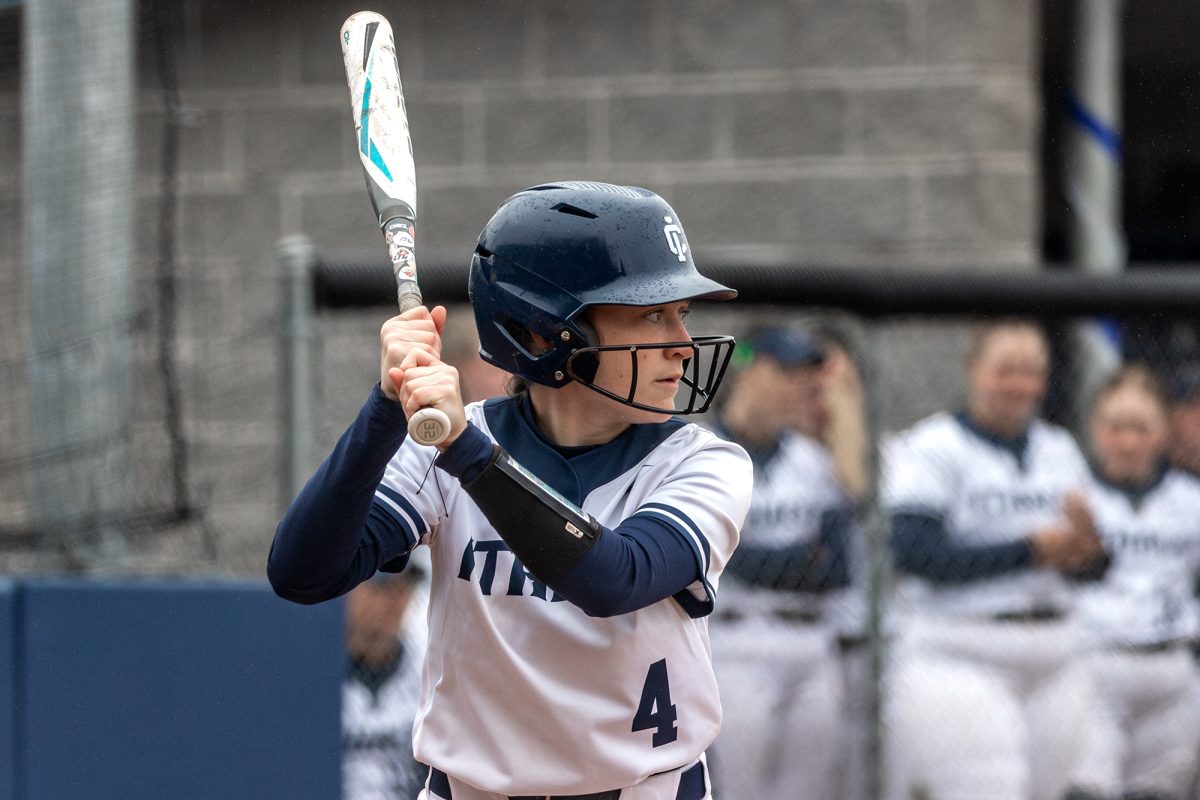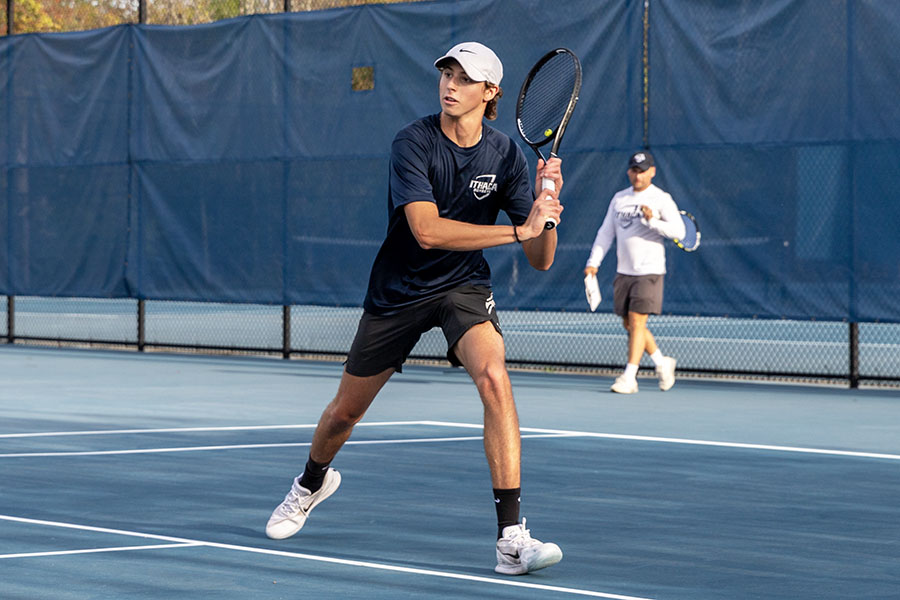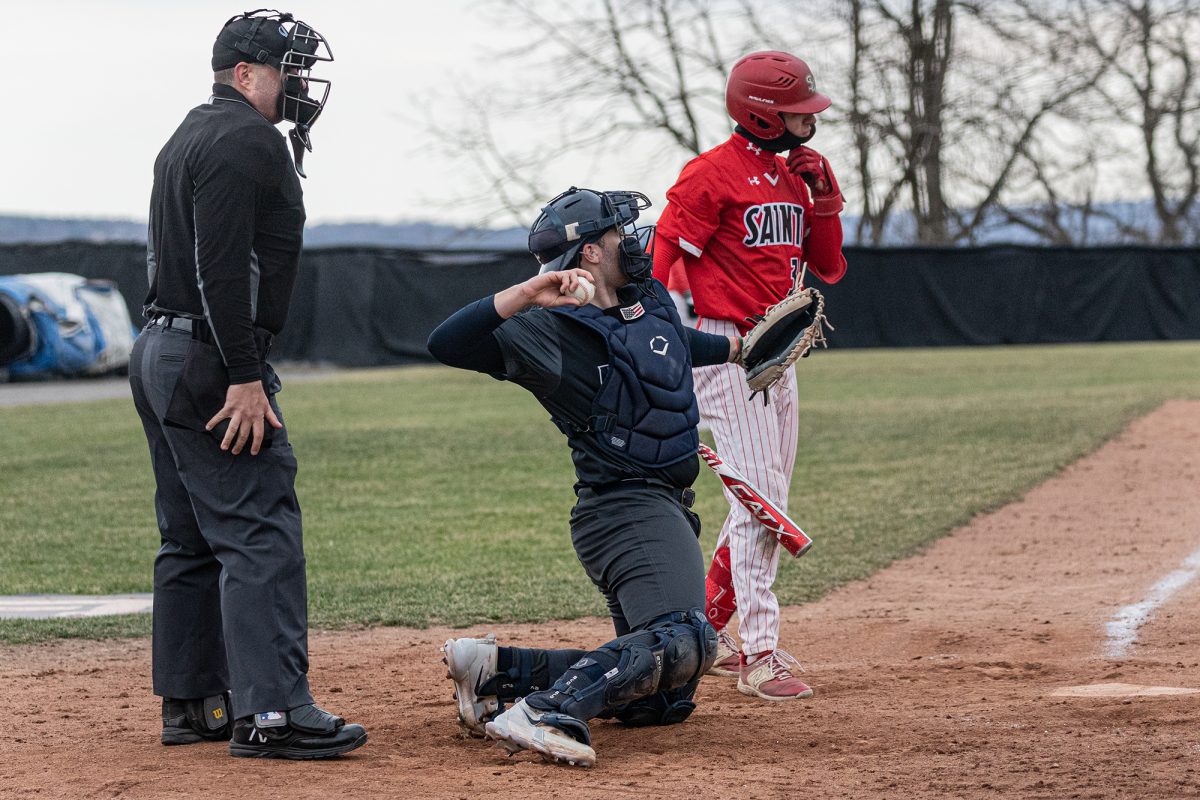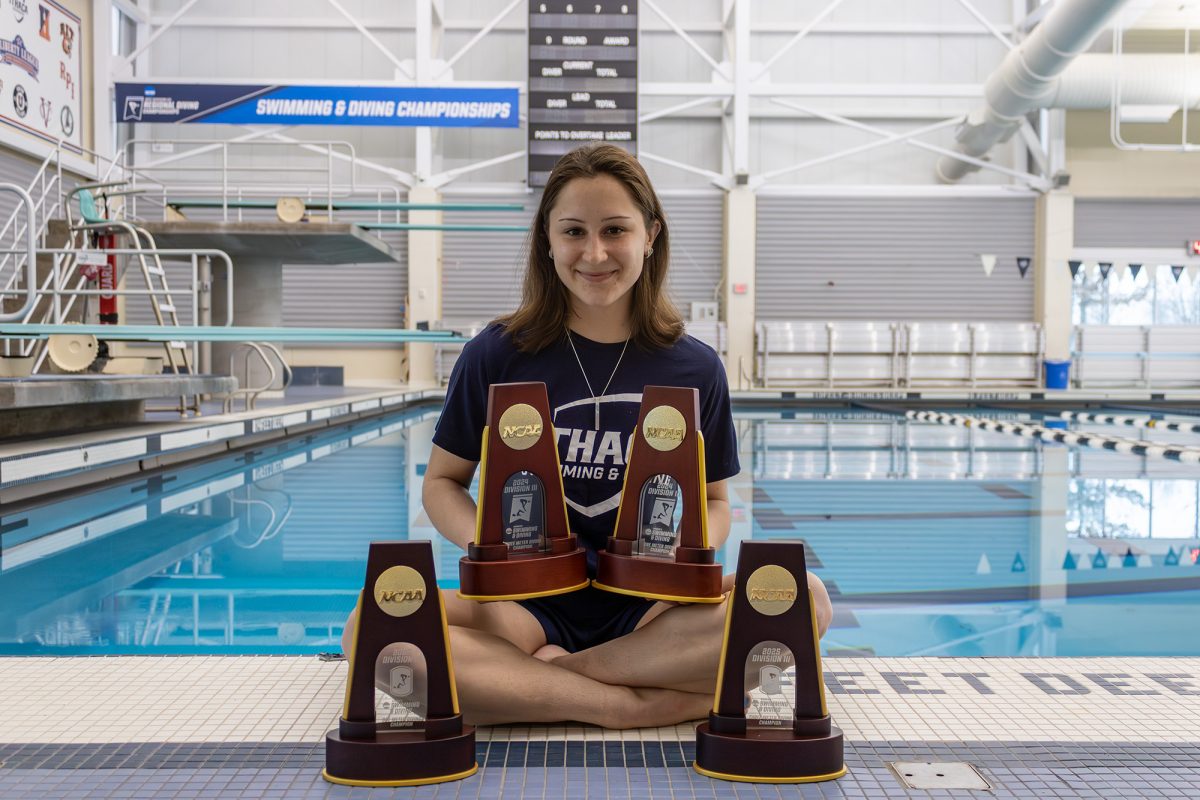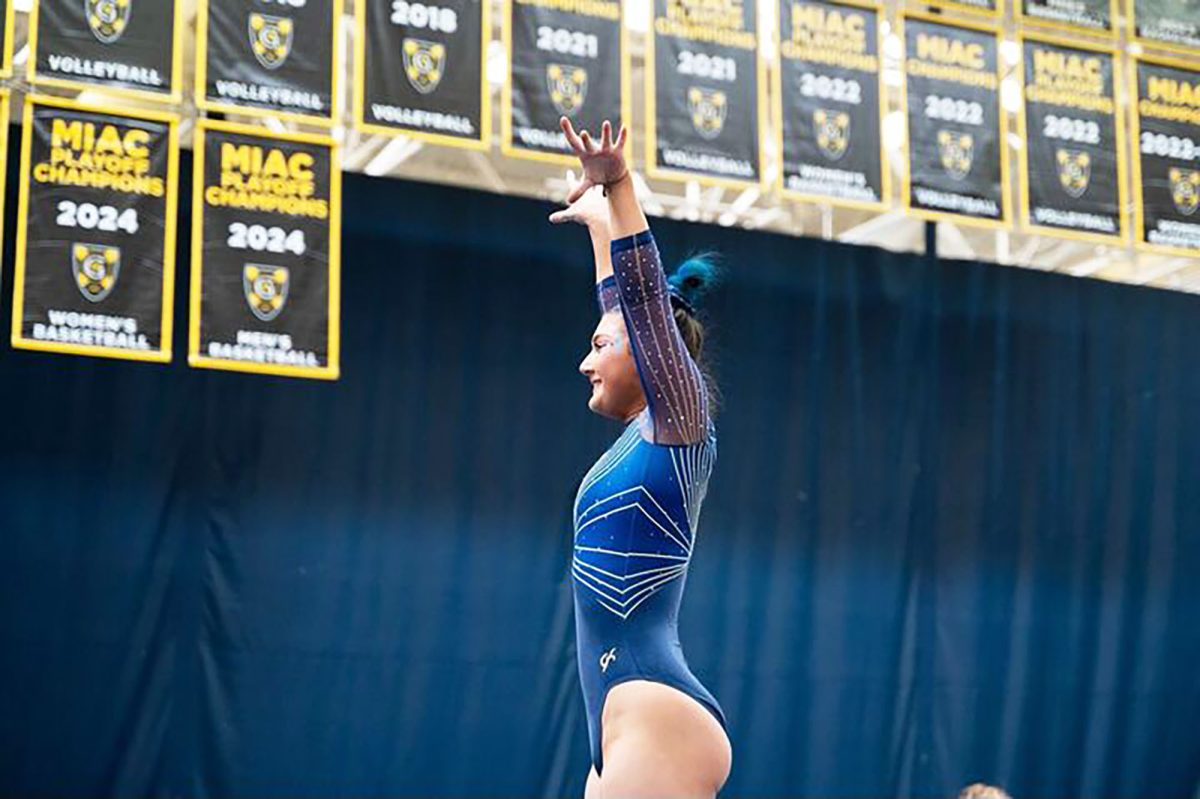The day before each meet, Jennifer Potter, women’s track and field head coach, drives to the grocery store and shops for a snack for the meet. She always strolls through the fruit and vegetable aisle and picks out a pear to pack in her backpack. But she never eats the pear come the day of the meet.
“I have no interest in eating it,” she said. “I just buy it because I’m superstitious.”
Athletes and coaches are well-known for their superstitious routines, and some, like Potter, do not have a clue why they perform them. Shannon Stone, a graduate student who works with multiple teams as a sports psychologist, said athletes and coaches can be superstitious because they are not able to control every factor leading up to a game, match, meet or competition.
There is no particularly bad thought that comes to mind for Potter — she simply feels compelled to buy the pear, just like how she feels compelled to sleep in the bed closest to the door at a hotel.
“There’s just things I always do, and then I’m afraid if I don’t do them, something bad will happen,” Potter said. “I just try to make sure everything goes smoothly when we compete.”
Potter said she sometimes tries to switch the location in which she stands in order to improve the performance of a certain athlete.
“I guess you just try to control everything you think you can control, which probably none of it has anything to do with anything,” she said.
When assistant coach Mary Wallenbeck handed then-sophomore Brandy Smith a pair of navy-blue knee-high socks with gold stars embroidered on them, Smith said she immediately knew these would be magic socks. They are the first thing she packs before traveling to a championship meet.
“I can’t imagine myself not remembering to bring my socks,” Smith said. “If we were driving to nationals, I would probably ask one of my coaches to go back to Ithaca and get them for me.”
Smith first slipped on the pair of socks for the Eastern College Athletic Conference Outdoor Championships in 2015 and triumphed in the discus event with a distance of 51.42 meters which led her to become an ECAC champion. During that same outdoor season, Smith became a NCAA champion in the discus while wearing those socks.
She is a five-time All-American and a two-time national champion overall, and each time she acquired those accolades, she was wearing those socks.
Although the sport of baseball is widely known for having superstitious players, some players on the baseball team said the squad has no superstitions this season.
Seniors Josh Savacool and Ryan Henchey said that in the past, the team had a superstition called “roasting the bats.”
Usually, when a particular hitter is struggling during the season, Savacool will approach this player before an at-bat to “roast” his bat. In that moment, Savacool, a redhead, kneels down and removes his cap, whereupon the batter, desperate to snap out of whatever funk he is in, hovers the barrel of his bat over Savacool’s head as if he is roasting a marshmallow on a wooden stick over a campfire.
The purpose of this ritual is to “heat up” the individual’s bat so that when the hitter enters the batter’s box for his next plate appearance, he will have better fortunes when making contact with a pitch.
Both Savacool and Henchey said only on rare occasions does the team bust out the bat-roasting ritual for hitters who are in the deepest of slumps. However, there have been two past instances in which Henchey roasted his bat over Savacool’s head and saw his fortunes at the dish heat up.
The first was during their sophomore campaigns when Henchey drove in a game-winning run, and the second time was this past fall preseason when he clubbed a home run after igniting his bat over the flame of Savacool.
Henchey said he was stunned when he swatted a home run after “roasting” his bat.
“I honestly couldn’t even believe it,” Henchey said. “I was like, ‘Oh my gosh, it works.’”
Savacool said he first began roasting his teammates’ bats back in high school and brought the superstition with him to the Bombers. He said he came up with the idea after watching a Division I player rub his bat over his redheaded teammate during the College World Series.
Stone said research shows that superstitions establish a placebo effect on athletes, which helps alleviate any anxiety the athlete may be enduring.
Heather Domina, ’07, was a member of the women’s crew team for four years. In 2003, during her freshman campaign with the South Hill squad’s novice crew boat, Domina and her teammates completed an undefeated season.
Domina said that prior to the beginning of the season, the team performed trust-fall exercises, where each rower would fall off a picnic table and the other eight rowers would catch her, as a team-bonding experience.
Eventually, the team implemented this into their prerace preparations; however, only the coxswain would fall off of the picnic table and be caught by her teammates. The more the team piled up victories in the waters, the more it believed in the ritual.
“We did it for our first race, and we won,” Domina said. “So we kind of felt we had to keep the tradition going before every race.”
Stone said issues can arise for athletes who have superstitions, such as using them as scapegoats for not preparing enough, as well as only validating the effectiveness of the superstition rather than the effectiveness of their training.
“Say a player wins a national championship wearing a certain shirt or wearing a certain pair of socks — that automatically kind of creates this magical aspect for them,” Stone said. “But they don’t think of all of the training and the preparation that went into it. They are like, ‘Oh, this must be lucky. This must be something that helped me.’”
Nonetheless, Stone said superstitions can be quite positive on the athlete’s conscious.
“I think if it does ease their mind that much, and if it does relieve them of that anxiety before, then by all means, go for it,” she said. “But, it’s certainly not the best way to prepare.”


